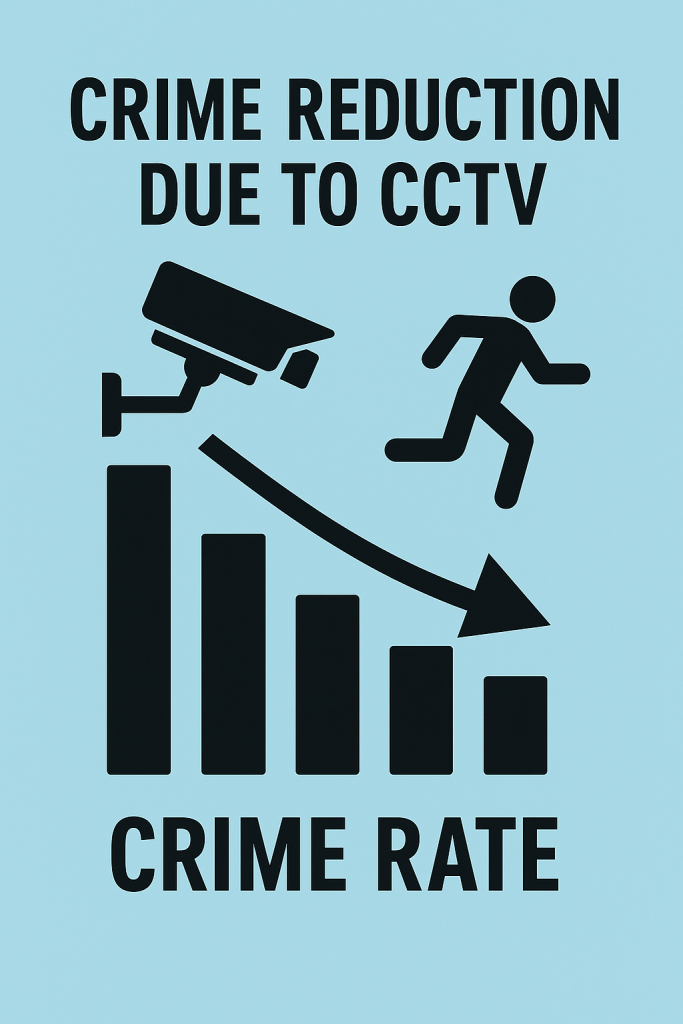Introduction
In recent years, the use of closed-circuit television (CCTV) systems in New Zealand has become an increasingly common tool for improving public safety and reducing crime. From bustling urban centers to small regional towns, CCTV has been adopted by local councils, private businesses, and homeowners to monitor activities, deter criminal behavior, and assist law enforcement in investigations. This article explores how CCTV has contributed to crime reduction in New Zealand, its growing prevalence, success stories, and the challenges associated with its use.
The Rise of CCTV in New Zealand
Historical Background
The widespread installation of CCTV in New Zealand began gaining momentum in the early 2000s. Initially concentrated in major cities such as Auckland and Wellington, these systems were primarily installed in public spaces like city centers, transport hubs, and high-crime areas. Over time, the reach of CCTV expanded to smaller towns and private enterprises, particularly as technology became more affordable.
Statistics on CCTV Usage
According to data from local councils and industry groups:
- Over 80% of New Zealand’s district councils have some form of CCTV monitoring in their jurisdictions.
- In Auckland alone, more than 1,000 public surveillance cameras are installed across the city.
- A 2023 survey by Retail NZ found that 70% of retail businesses use CCTV as part of their loss prevention strategy.
CCTV as a Deterrent to Crime
Psychological Deterrence
One of the primary benefits of CCTV is its ability to deter criminal activity. The mere presence of cameras can discourage potential offenders from engaging in theft, vandalism, or anti-social behavior. Criminals are less likely to act if they know they are being watched and potentially recorded.
Empirical Evidence in NZ
- In Hamilton, after the installation of over 100 new cameras in the CBD, police reported a 19% drop in reported assaults within the first year.
- In Whangārei, CCTV footage helped curb street violence during weekends, leading to a noticeable reduction in emergency call-outs.
- A study in Christchurch (2021) found that areas with active CCTV monitoring experienced 26% fewer property crimes compared to similar areas without surveillance.
Case Studies: CCTV in Action
Auckland’s Central City Surveillance
The Auckland Council, in collaboration with NZ Police, manages a sophisticated public surveillance network. In high-traffic areas like Queen Street and Britomart, CCTV cameras help monitor large crowds, detect suspicious activity, and respond to incidents in real-time.
Impact:
Footage from these cameras has played a critical role in apprehending offenders involved in robbery, vehicle theft, and assaults. In one notable 2022 case, a series of burglaries was solved after a suspect was identified through public CCTV footage and apprehended within days.
Rotorua’s CBD Safety Initiative
Rotorua, a town known for tourism, faced increasing reports of youth-related crime and anti-social behavior. In response, the local council upgraded its CCTV system and extended coverage across high-risk areas.
Outcome:
Within six months, youth crime in the CBD dropped by 32%, and there was a marked increase in community confidence in public safety.
Rural and Regional Deployment
CCTV is not limited to cities. In towns like Balclutha and Te Kuiti, council-operated cameras monitor main streets and public facilities. These systems support the limited policing resources in rural regions and provide crucial evidence for crimes such as illegal dumping, vehicle theft, and shoplifting.
CCTV and Law Enforcement
Real-Time Monitoring
In many cities, CCTV networks are monitored live by council staff or police. This enables rapid deployment of officers to areas where a crime is unfolding, improving response times and increasing the chances of arrests.
Evidence Collection
Footage from CCTV has become a vital investigative tool:
- Police frequently request CCTV recordings from both public and private systems.
- Video evidence is admissible in New Zealand courts and often leads to successful prosecutions.
- According to NZ Police, more than 60% of serious criminal cases in urban areas involve CCTV footage in the evidence bundle.
Private Sector and Business Adoption
Retail and Hospitality
Retailers have embraced CCTV as a frontline tool against theft. Systems are used to:
- Monitor customer behavior
- Detect shoplifting in real-time
- Protect staff during aggressive incidents
Retail NZ reports that businesses with CCTV experience significantly lower shrinkage losses than those without.
Industrial and Construction Sites
High-value equipment and materials make construction sites and warehouses targets for theft. Many sites now install CCTV towers with motion detection and thermal imaging to protect assets, even in remote or dark environments.
Challenges and Criticisms
Privacy Concerns
While effective, CCTV raises questions about privacy and surveillance:
- The Office of the Privacy Commissioner (OPC) has emphasized the importance of balancing security with individual rights.
- Misuse or unauthorized access to footage can lead to legal action under the Privacy Act 2020.
To remain compliant:
- Operators must place clear signage indicating surveillance.
- Footage must be stored securely and only accessed by authorized personnel.
Technical and Financial Limitations
- Smaller councils and businesses often struggle with the high initial setup costs and ongoing maintenance of CCTV systems.
- Some systems suffer from outdated technology, poor image quality, or insufficient coverage.
Future of CCTV in New Zealand
Integration with AI and Smart Technology
New Zealand is gradually adopting AI-powered CCTV, which can:
- Automatically detect unusual behavior or loitering
- Alert authorities to abandoned items
- Improve facial and license plate recognition
Pilot programs are underway in parts of Wellington and Tauranga, exploring how smart surveillance can enhance policing without increasing manpower.
Community-Led Surveillance Initiatives
In some neighborhoods, residents collaborate to install and manage shared camera networks. These grassroots efforts, often supported by community trusts or local boards, have shown promise in deterring burglaries and car theft.
Conclusion
CCTV has become an integral part of New Zealand’s crime prevention and public safety landscape. Its presence in cities, towns, and private spaces has contributed to lower crime rates, faster police responses, and increased community security. While challenges remain—especially around privacy, cost, and over-surveillance—the continued advancement of technology and responsible governance will likely make CCTV even more effective in the years to come.
For New Zealand, the key is balance: harnessing the power of surveillance for safety, while ensuring that personal freedoms and legal protections remain intact.
Secure Your Home and Business with Garrison Alarms!
Experience unmatched safety with Garrison Alarms – your trusted partner in cutting-edge home and business security solutions. With over 35 years of experience, we offer expert installation, state-of-the-art technology, and personalized security strategies tailored to your unique needs.
Our Services Include:
- Home & Business Alarms: Maximize security with our advanced wired and wireless alarm systems.
- CCTV Systems: Protect your property with high-resolution, 4K HD, and color night vision cameras.
- Access Control: Secure your premises with keypad entry, biometric solutions, and more.
- Alarm Monitoring: 24/7 monitoring to ensure your safety and peace of mind.
Why Choose Garrison Alarms?
- Expert & Professional Service: Our licensed technicians provide top-notch installation and support.
- Customer Satisfaction: We prioritize your security and satisfaction with a focus on quality and reliability.
- Affordable Pricing: Get the best security solutions at competitive prices.
Get a FREE Quote Today! Visit Garrison Alarms or call us at 09 520 4875 to learn more and secure your property today!
Garrison Alarms – Your Safety, Our Priority




